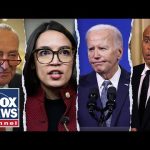When former First Lady Michelle Obama opted out of attending key political events such as Donald Trump’s second inauguration and Jimmy Carter’s funeral, it stirred a significant discourse about the roles and responsibilities tied to her position. Her decision highlights a broader cultural trend toward individualism over traditional duties and responsibilities. While some may argue that personal comfort should take precedence, this choice appears to undermine a sense of duty not only to her husband, former President Barack Obama, but to the office and legacy they represent.
Michelle Obama’s absence at these events shines a light on what many view as a lack of respect for tradition. Throughout American history, the peaceful transition of power and respect for predecessors have been crucial elements celebrated in such gatherings. These events are not merely about the individuals involved but are symbolic of the democratic institution itself. By attending, past leaders demonstrate respect for the office, irrespective of personal feelings towards the sitting president. Thus, when Michelle Obama eschews these traditions, it suggests a form of personal privilege taking precedence over long-standing norms.
Some may defend Michelle’s decision by pointing to President Trump’s own absence from subsequent President Biden’s inauguration. However, the roles are inherently different. As a former president, Barack Obama demonstrated a respect for tradition that Michelle failed to mirror. It is essential to recognize that when one assumes a public role, there are obligations and responsibilities that extend beyond personal desires. Being part of the presidential family involves shouldering duties that, at times, may conflict with one’s personal preferences but are necessary for the role being played.
Michelle Obama’s public explanation, focusing on personal well-being and the burden of expectations, seems incongruous with the immense public responsibility her position once held. Indeed, life as a public figure can be challenging, but respect for the office one was part of should guide decisions. By choosing not to attend these important events, Michelle Obama prioritized her comfort over the subtle yet profound impact her presence would have had on preserving these democratic traditions.
Ultimately, the choice Michelle made reflects a broader societal conversation about balancing personal well-being with duty. Yet, when personal choices overshadow the responsibility to honor traditions that bind the nation, it raises questions about priorities. Respecting the presidency and the time-honored traditions surrounding it affirms stability and continuity, crucial elements in an ever-evolving political landscape. For public figures, setting an example through actions can often speak louder than words, reinforcing the strength and unity of the country’s democratic process.




